Wales players’ caps to games ratios
Among the heightened anticipation of Wales’s recent qualifier in Israel the Welsh media took time out to pay tribute to Ashley Williams as he prepared to win his fiftieth, and so-called golden, cap, such as in this excellent interview with Chris Wathan. But it occurred to Russell Todd that Williams would be earning his golden cap sooner than his defensive elders Danny Gabbidon and James Collins despite making his debut 6 and 4 years later respectively. Surely, Williams had seldom missed a game in the intervening period since that Luxembourg match? It prompted deeper digging and, thanks to the comprehensive Gorau Chwarae, Cyd Chwarae archive, to calculate players’ appearance ratio i.e., number of caps earned since making their debut. Drawing on the squad for the Israel match plus absentees and recently-capped players, it makes for interesting – i.e. nerdy – reading. It also serves to identify those candidates with a chance to surpass Neville Southall’s all time record number of Welsh appearances (92) and perhaps even reach a century of caps.
All figures are up to and including the Israel fixture.
[toggles class=”yourcustomclass”]
[toggle title=”Wayne Hennessey – 48 caps/68 matches (70.6%) since debut versus New Zealand, 2007” class=”in”]Hennessey would have already earned his golden cap had it not been for two serious knee injuries that resulted in him missing 16 months of first team football and not get capped at all during 2012. Hennessey’s assured debut at the end of the 2006-07 season saw him start the following season as John Toshack’s undisputed number one by playing in the next four fixtures, three of which were qualifiers; the run ending when he returned to the under 21s for the games against [who? October 2007]. Rested for friendlies in 2008 against Luxembourg and Georgia, by which time Danny Coyne had retired and Boaz Myhill had declared his allegiance, Hennessey’s only other rivals were Lewis Price and Jason Brown, but for the remainder of Toshack’s reign and under Gary Speed Hennessey was a fixture in the side. In April 2012 however Hennessey suffered the first of his two injuries. Having played in Gary Speed’s final match before his untimely death, versus Norway, Hennessey missed the next 13 internationals before starting against Macedonia in Cardiff in October 2013, 23 months after his previous cap. Outside of this spell on the sidelines Hennessey has missed only six of 54 internationals for which he has been available since his debut. For me, Hennessey is the principle rival to Chris Gunter to be Wales’s first cap centurion.[/toggle]
[toggle title=”Ashley Williams – 50 caps, 57 matches (87.8%) since debut versus Luxembourg, 2008“]Displaying incredible commitment, consistency, durability and discipline considering his position and the risk of suspension, Williams played in 24 of the 25 games following his debut against Luxembourg, remaining on the bench for the home defeat to Finland in March 2009. He was ever-present for the next two years under John Toshack and Brian Flynn but was not selected in Gary Speed’s first game in charge versus the Republic of Ireland in the first game of the Nations Cup in February 2011. The Championship play-offs meant Williams missed both of the remaining Nations Cup fixtures after which he returned to being ever-present in the side. However suspension and an ankle injury saw Williams miss an unprecedented three consecutive games (Serbia, Macedonia, Belgium) in the final qualifiers for the 2014 World Cup. Recent comments in the media appeared to suggest Williams doesn’t see himself still playing international football in beyond the age of 34 (he is currently 30) so a century of caps will probably elude him.[/toggle]
[toggle title=”James Collins – 46 caps, 95 matches (48.4%) since debut versus Norway, 2004“]Collins tends to polarise opinion. To some he is a brave, tough Premier League veteran. To others he is rash and calamitous, an accident waiting to happen. I tend to veer towards the former camp with his performance in one of his first games back after a serious knee injury in Monchengladbach in 2008 particularly heroic. However, even accounting for almost a year on the sidelines, missing, albeit marginally, more games than you have played for your country is hard to ignore. Mark Hughes awarded Collins his debut when he was two months shy of his 21st birthday, younger than the likes of Jason Koumas, Simon Davies and Danny Gabbidon were upon winning their first caps. Less conservative than Hughes, and with arguably far less choice over the matter, John Toshack was capping the likes of Chris Gunter, Aaron Ramsey, Rishard Duffy, Lewin Nyatanga and Gareth Bale in their teens and had he been in charge earlier Collins probably would have reached his golden cap by now even accounting for the likes of Robert Page, Andy Melville, Adrian Williams and Kit Symons still being in contention at that time. The unedifying public spat between Collins and Chris Coleman in 2013 was a nadir for Collins whose attitude, availability and commitment had been questioned several times prior to this incident, and is in marked contrast to Ashley Williams. James Chester’s emergence of late puts further pressure on Collins’s place but with him apparently loving life more than ever in the Wales camp he is likely to be available, fitness-permitting, for another couple of seasons and a golden cap beckons, although a place in the pantheon of Welsh greats probably does not.[/toggle]
[toggle title=”Ben Davies – 13 caps, 18 matches (72.2%) since debut versus Scotland, 2012“]Davies has already played centre back, left back and wing back for Wales since his surprise international debut, itself only 2 months after his professional debut for Swansea City. Injured for the Israel and Belgium games due to a seriously dislocated shoulder Davies might have won more caps to date had it not been for the competition with Neil Taylor that probably stymies the chances of both becoming cap centurions. For instance in an orthodox 4-4-2 formation and with both players fit, Coleman picked Taylor over Davies at left back to face Cyprus in 2014. It is also often overlooked that prior to his debut against Scotland, Davies was an unused substitute in the preceding double header against Belgium (0-2) and Serbia (1-6). Davies can’t have too many complaints since his earlier fortune in making his professional and international debuts both came at Taylor’s expense; although Davies’s first season at Tottenham has been difficult, at 22 years of age Davies looks set for a long international career. His versatility will see him continue to win caps occasionally in the centre of defence in either a pairing or on the left of three centre backs; indeed there is a school of thought that sees Davies’ long-term position here.[/toggle]
[toggle title=”Chris Gunter – 58 caps, 68 matches (85.3%) since debut versus New Zealand, 2007“]The youngest player ever to reach 50 Wales caps when he did so against Belgium in late 2012 aged only 24 years, 4 months Gunter is odds-on to become the first Wales cap centurion. Only Hennessey, Joe Ledley and possibly Gareth Bale will challenge him in my view. Gunter’s consistency is all the more impressive when you consider that for the six games after his debut he was not selected in a match day squad with his second cap coming, like several of his early caps, at left back against the Republic of Ireland in late 2007. To have missed only four of the next 59 games, and one of those due to suspension after his red card against Bulgaria in 2010, is extremely impressive and has seen him fend off the challenges for the right back shirt of Adam Matthews, Sam Ricketts and Neal Eardley. Memorably he was omitted from the squad for the end-of season friendly in The Netherlands in 2014 because he had only just recovered from injury, only to let Chris Coleman know that he would be coming along anyway because he was fit and wanted to play. If the Wales team is a shop floor, Gunter is its shop steward and whose name is only beaten to the team sheet by Bale, Allen, Ramsey and Ashley Williams.[/toggle]
[toggle title=”Neil Taylor – 21 caps, 38 matches (55.3%) since debut versus Croatia, 2010“]Left back is probably the most hotly-contested position in the Wales team and squad. Gone are the days of selecting a League Two journeyman such as Darren Barnard or pressing the likes of Gary Speed into action out of position. Taylor, Ben Davies, Declan John and Paul Dummett have all recently won caps there while the likes of Rhoys Wiggins are waiting in the wings. Serious injury is the main reason why Taylor’s cap-to-game ratio is a little over 50%. Like Aaron Ramsey, form did not return at the same time as fitness for Taylor who saw Ben Davies incumbent at left back for both club and country ahead of him. 2014/15 saw performance levels finally, and consistently, return to pre-injury levels. Davies moving to Spurs has seen Taylor reclaim the Swansea shirt. And while Coleman’s use of a wing back formation has seen both players make the starting line up, with Davies lining up at centre back, when it has appeared to be a straight shootout for an orthodox left back spot such as against Cyprus and Belgium, Davies has been relegated to the bench behind Taylor. Taylor’s tendency to dive in to fouls and collect bookings – he recently served a suspension for Swansea for reaching ten yellow cards – will likely see him miss games but even accounting for this expect Taylor to reach a golden cap and win many, many more.[/toggle]
[toggle title=”Ashley Richards – 4 caps, 22 matches (18.2%) since debut versus Mexico, 2012“]There remains doubts about Richards’ best position due to his versatility and lack of first team club games, of which he has only played 85. Primarily he has played at right back at club level, largely in loan spells and as a substitute, but has also played midfield and impressed as a substitute playing right midfield against Croatia at Swansea in 2013. His best performance to date in a Welsh shirt was as right back in Brussels when Wales finished the match with a back four of Richards, Gunter, James Wilson and Neil Taylor. His distribution was neat and he demonstrated an acute positional awareness suggesting that Richards appears to have the technique and ability to have a successful career but he needs games. Richards’ only other cap was against Finland in 2013. At the time of writing Richards is being linked to a move to the Championship with several potential suitors.[/toggle]
[toggle title=”Joe Allen – 20 caps, 46 matches (43.5%) since debut versus Estonia, 2009“]Allen’s international career was frustratingly stop-start to say the least until late 2011. His debut was as an eightieth minute substitute for Jack Collison against Estonia in May 2009, further reducing the age of an already-youngest ever starting XI in the first ever match at Llanelli’s Parc y Scarlets. Allen remained on the bench for the qualifier in Azerbaijan the following week and did not make a squad until the November 2009 friendly against Scotland, again making a substitute appearance. In 2011 Allen remained on the bench against England (twice) and Montenegro but made a 71st minute appearance against Australia for only his third cap, and little over an hour of international football, in the 20 games since Estonia. After making his full debut at home to Switzerland in October 2011 he has earned a much better 16 caps in the next 25 games but the games missed have been important ones including double headers – Bosnia Herzegovina/Cyprus (2014), Scotland/Croatia (2013), Macedonia/Serbia (2013) – and the opening 2014 World Cup qualifier against Belgium. 20 caps is a poor return in six years of international football for a player of his undoubted quality. That said, he is a mainstay of the current side and his performances in consecutive away qualifiers against Belgium and Israel have been extremely impressive, and in different ways too. A dogged, rearguard performance against Belgium in which he received some brutal treatment from opponents; and a metronomic, controlling performance in Tel Aviv where he set the platform for an exciting offensive performance from the likes of Ramsey, Robson-Kanu and, of course, Gareth Bale. If he can get the ratio up to 60% Wales will become genuine contenders for regular qualification.[/toggle]
[toggle title=”Joe Ledley – 56 caps, 83 matches (67.5%) since debut versus Poland, 2005“]Wales’ enforcer? Ledley’s performances over the last 3 years have been excellent and despite a stellar cast of supposedly more able midfielders around him – Ramsey, Allen, Jonathan Williams, Jack Collison, Bale – Ledley continues to be a first choice for Chris Coleman. Counting his international caps as well, Ledley has played over 500 first team games, a phenomenal total given he is still only 28. That said I would have guessed his ratio to be higher such a staple member of the side has he been in the ten years since his debut. He missed several caps under John Toshack who preferred the Carls, Robinson and Fletcher, initially, and has also had to compete for caps with the likes of Simon Davies, Jason Koumas, and David Vaughan and then Jack Collison, Joe Allen, Andy King and Aaron Ramsey. His durability suggests he has at least another five years of international duty in him so assuming Wales also qualify for tournaments, in that time there are another 60-70 caps available for him to win. Competition is fierce in the Welsh midfield however. It will be tough, but I expect him to reach a century and, like the Republic of Ireland had with the likes of Staunton, Keane, Kilbane, Dunne, Given, O’Shea and Duff, there is a real chance that Ledley could be a part of a clutch of players to do so.[/toggle]
[toggle title=”Aaron Ramsey – 33 caps, 50 matches (66%) since debut versus Denmark, 2008“]That Ledley and Ramsey have similar appearance ratios surprised me a lot. My impression over the last few years is that Ledley has been a regular while Ramsey has had an irritating habit of missing games here and there, as well as several due to his broken leg. After his debut in Brondby he played in the next 10 games, starting eight of them. The leg break in February 2010 halted this run and saw Rasmey miss Wales’ next seven internationals (it felt like more). Toshack resigned, Brian Flynn came and went, and he returned for Speed’s second game in charge at home to England (0-2). Discounting these seven games, Ramsey has an appearance ratio of over 75%. If he can maintain this rate and get his overall ratio closer to it then Wales’s chances of qualification will increase significantly. Fitness permitting, Ramsey will emulate the caps totals of the likes of Craig Bellamy and Gary Speed and though he won’t be the first to get there, he has a decent chance at becoming a cap centurion.[/toggle]
[toggle title=”David Vaughan – 39 caps, 104 matches (37.5%) since debut versus USA, 2003“]Of this list only Danny Gabbidon made his international debut earlier. Vaughan has been a patient and loyal servant for Wales. It was pointed out in podcast #11 that were Vaughan a decade younger he would be likely to win a lot more caps because he would be identified as the perfect recycling midfielder for which there is a current fashion. His early career meant he was primarily a left winger/midfielder where Ryan Giggs, Craig Bellamy, John Oster and Joe Ledley have won the majority of their caps. But it is perhaps puzzling why John Toshack did not prefer him to Carl Fletcher or Carl Robinson. Gary Speed also preferred Andrew Crofts over him. Vaughan is a much under-rated player and deserves to win a golden cap which he will probably just about do. As he displayed in Tel Aviv he can come on and help close a game down and he is also an able deputy should Joe Allen be unavailable.[/toggle]
[toggle title=”David Cotterill – 22 caps, 81 matches (27.2%) since debut Azerbaijan, 2005“]Made his debut two games after Joe Ledley but the respective international careers of these Cardiffians are poles apart. Over half of Cotterill’s caps have been as a substitute, with the friendly in Belfast in 2007 seeing Cotterill ignominiously ‘subbed as a sub’ after joining the fray as a half-time replacement for Richard Duffy. One of several players to fall out with John Toshack when Cotterill was omitted from the end of 2006/07 season squads for the games against New Zealand and Czech Republic. Cotterill was not selected for over a year until the Russia, Finland and Liechtenstein qualifiers in late 2008, games in which he remained on the bench. He finally won another cap in the friendly against Poland in Portugal and has been in and out of the squad ever since. Having said that if Wales qualify for Euro 2016 his early goal against against Cyprus will have proved to be an invaluable contribution.[/toggle]
[toggle title=”Hal Robson-Kanu – 25 caps, 38 matches (65.8%) since debut versus Croatia, 2010“]Decent appearance ratio for a player rapidly gaining cult hero status. “HRK” was one of five debuts John Toshack handed out in Osijek and perhaps it is surprising that of the five he is the one who has accrued most caps to date, though that is largely down to Neil Taylor’s leg-break. Little was frankly expected of Mark Bradley and Andy Dorman; though Christian Ribeiro was on Everton’s radar as a Bristol City youngster and had been an under 21 regular. HRK’s versatility up front and considerable strength appear to be greatly valued by Coleman and he is a shoe-in for the Euro 2016 squad should Wales qualify, but longer-term competition up front for caps comes from Sam Vokes and in the wide left/right role where he has won the majority of his caps it might come from Jonny Williams should he ever manage a run in the side.[/toggle]
[toggle title=”Gareth Bale – 49 caps, 78 matches (62.8%) since debut versus Trinidad and Tobago, 2006“]Ramsey, Ledley, Simon Church and Robson-Kanu all have better appearance ratios than Bale, which surprised me. That said, he was eased into the side as any 16 year old probably should be and suffered frustrating injuries in 2008 and 2010 that punctuated his early Tottenham career. At the current rate for him to reach a century of caps he will need to be available to Wales for another nine years and almost 80 games. However if Wales are qualifying for tournaments, nine years becomes seven or eight with tournament pool games and pre-tournament friendlies increasing the number of games in every two year period. The team’s totem however has an impressive appearance record of late missing only one of the last eight fixtures (The Netherlands away), after his stuttering start to the 2013/14 season that was preceded by his protracted transfer to Real Madrid. But playing in fewer than two Wales games in every three is slightly disappointing it must be said. Like Allen and Ramsey, Bale needs to get his ratio in the 70-75% for Wales to stand any consistent chance of qualifying. It seems fitting that in reaching his golden cap against Belgium, Bale does so in a top-of-the-table clash in his home city against the number three ranked team in the world.[/toggle]
[toggle title=”Simon Church – 29 caps, 46 matches (63%) since debut versus Estonia, 2009“]Another whose ratio was better than I would have guessed. Aided by injury to Sam Vokes and Ched Evans’s unavailability, Church probably owes his caps to there being a lack of better options. He probably would be closer to 40 had Steve Morison not declared his eligibility. Much maligned, Church is at least part of the group that has emerged en masse from the under 21s and who provide for continuity, familiarity and the terrific team bond that exists, important qualities that successful international teams have as proven by Germany, Spain, Belgium and perhaps more pertinent to a country the size of Wales, Iceland and the Republic of Ireland. Church will probably earn a golden cap eventually.[/toggle]
[toggle title=”Sam Vokes – 32 caps, 57 matches (56.1%) since debut versus Iceland, 2008“]Unlike those of fellow debutants against Iceland, Jack Collison and Ched Evans, Vokes’ Wales career has slowly burgeoned, to such an extent that he is arguably Wales’s first choice striker. Indeed, it is his absence due to a knee injury, sustained in March 2014 and which confined him to only a single appearance during that calendar year, that has confirmed this status. A second substitute appearance came in the second end of 2007-08 friendly against The Netherlands before another late introduction two games later (he didn’t play in the August 2008 Georgia friendly) rescued Wales’s blushes at home to Azerbaijan. The reward was his full debut, upon his fourth cap, in Russia where he greatly impressed in a lone striker role. A second full appearance followed in the next qualifier against Liechtenstein. However, Toshack appeared to prefer the pacier and more mobile Ched Evans or Craig Bellamy in the lone striker role and Vokes failed to play in Wales’ next four internationals, but then followed a run of nine caps in ten games, seven of which were from the bench. Steve Morison’s availability is largely the reason Vokes only won five caps in total in the 2010 and 2011 calendars years, but niggling injuries were also creeping into Vokes’ game. Though his late brace against Norway hinted that he might have been on the cusp of nailing down the striking berth as the Welsh team began to find its feet, it was not, sadly, a precursor to further happy times, for the player or the team. Chris Coleman continued to select Vokes in squads but confined him to late appearances from the bench, if he left it at all. When Coleman selected Vokes to start against Serbia (0-3) it was only his fifth start in 28 caps. A sixth came in the 2014 Iceland friendly (3-1), in which he scored his sixth goal. With so many substitute appearances Vokes’ goal-to-start and to-minute ratios are much more impressive than his overall goals to games ratio and lends further credence to his status as Wales’s first choice number 9. However, after such a serious knee injury he needs games, at both club and international level, before such a status should be accompanied by a similar level of expectation. [/toggle]
[toggle title=”Andy King – 28 caps, 46 matches (60.9%) since debut versus Estonia, 2009“]This figure surprised me and would be higher but for his recent red card versus Cyprus. I suspect most people would be surprised to find out that King has figured in almost two thirds of games since his debut as a late replacement for Ched Evans. Despite “not being ready” for international football King made two further substitute appearances in 2009 (Liechtenstein, 2-0, Scotland, 3-0) after his debut. A regular in squads under Toshack and despite his tender age playing regularly in the Championship for Leicester City, a fourth substitute appearance, and win, came at Parc y Scarlets against Luxembourg, in which he scored with a trademark late run and header. It was on his fifth cap, and substitute appearance that he first tasted defeat against Bulgaria (0-1) under Brian Flynn who rated King highly from under 19 and 21 level. His first start came in Basel in the following game against Switzerland (1-4). This was King’s breakthrough season though as he finished as Leicester’s players’ player of the year, the club’s top scorer and in the Championship’s PFA Team of the Year. He figured regularly in Gary Speed’s squads but caps were infrequent, though he figured in both Euro 2012 qualifiers against England. Chris Coleman didn’t select him until his fourth game in charge against Belgium (0-2), but King then played in 15 of the next 17 games until his red card against Cyprus. Having served his ban, King’s recall to the squad for Belgium coincides with a terrific end to the current season in the EPL. 50 caps is easily obtainable by King, but with competition for places in Wales’s midfield fierce, it is increasingly difficult to regain one’s place in the team and to resume his recent run of caps might prove tricky. [/toggle]
[toggle title=”Adam Matthews – 12 caps, 31 matches (38.7%) since debut versus Scotland, 2011“]Matthews’ international career has stalled somewhat under Chris Coleman with only two starts (Serbia home, 0-3; Austria, h, 2-1) and a late substitute appearance (Macedonia away, 1-2) in the last 32 months over the last 17 fixtures, though Matthews was an unused substitute in the goalless draw in Brussels last November. With Chris Gunter nailing down the right back position, Matthews was often selected at left back by Gary Speed after his debut in Dublin in the Carling Cup as a replacement for Neal Eardley. Another pair of substitute appearances followed, against Northern Ireland and Australia, before Matthews sat out the next three competitive games in which Wales under Speed began to show resilience, cohesion and greater fluidity in its play. A fourth cap saw Matthews replace Darcy Blake at right back in Sofia before his first start, at left back, came in Speed’s final match in charge. The emergence of Ben Davies, Paul Dummett and Neil Taylor’s return to fitness has seen Matthews struggle to make recent squads although niggling injuries have also played their part. Some consider Matthews able to play in a more advanced wide role but with Bale, George and Jonathan Williams, Hal Robson-Kanu, David Cotterill and even Shaun MacDonald, all filling these roles of late Matthews faces considerable competition in his prospects of further caps.[/toggle]
[/toggles]
Others:
[toggles class=”yourcustomclass”]
[toggle title=”Danny Gabbidon – 49 caps/112 matches (43.8%) since debut versus Czech Republic, 2002“]An appearance ratio identical to Wayne Hennessey would see Gabbidon tie equal third with Craig Bellamy on the all-time list. A ratio identical to Ashley Williams would have seen Gabbidon already exceed Neville Southall’s record tally. But If Collins’ appearance ratio is patchy, Gabbidon’s is even worse. Injuries can be blamed for the Wales appearance record being out of Gabbidon’s reach, but with only nine caps in the last 7 years and a four month international ‘retirement’ at the end of 2010 (which he neglected to let caretaker manager Brian Flynn know about) it is difficult to lay the blame anywhere else than at the player himself for potentially being marooned a cap short of a half century. Gabbidon’s poor appearance record is all the more frustrating given he is one of the most naturally gifted defenders of his generation with a combination of pace, awareness, poise and technique that many of his British peers lack; and given the ease with which Gabbidon took to international football, in both full back positions and at centre back, and in particular against strikers in his early caps of the quality of Rooney, Koller and Del Piero. It is also a shame that the partnership and understanding with Collins at both Cardiff City and West Ham were seldom of service to the national team and saw Wales drafting in the likes of Craig Morgan, a teenage Lewin Nyatanga, Steve Evans and Danny Collins.[/toggle]
[toggle title=”Sam Ricketts – 52 caps, 88 matches (59.1%) since debut versus Hungary, 2005“]Ricketts had an impressive ratio for much of John Toshack’s reign ever since his debut at left back in Toshack’s first game (of his second spell) as coach against Hungary in February 2005. Three other defenders – David Partridge, Danny Collins and Stephen Roberts – also made their international bows, betraying how bare Mark Hughes left the cupboard. Left back had been a difficult position for Mark Hughes with Gary Speed and Danny Gabbidon pressed into action there. Ben Thatcher’s availability appeared fortuitous and timely. It also appeared to be contingent on Mark Hughes being manager. As soon as Hughes resigned, injuries and suspension (obviously) reduced Thatcher’s availability, and in the end he never played under Toshack. Ricketts’ mobility and energy was well-suited to Toshack’s preferred wing back formation, and with now little competition for his place he went on to play in 12 of the next 13 internationals, missing only the Trinidad and Tobago friendly, before a promising young left back called Gareth Bale emerged to take his place in the Slovakia and Cyprus double header in October 2006. Ricketts’ versatility, however, was proving useful to Toshack as he switched flanks to allow for the blooding of Bale, Chris Gunter, Neal Eardley and Lewin Nyatanga at full/wing back depending on formations. Caps proved to be more infrequent during 2008-10 but by the start of the Euro 2102 campaign Ricketts and Gunter were first choice full backs. But Toshack’s resignation led Brian Flynn to pick Ricketts at centre half against Bulgaria (0-1) in 2010 alongside James Collins, with Ashley Williams pressed, disastrously, into a holding midfield role. Under Gary Speed, Ricketts found himself behind a recalled Danny Collins and Neil Taylor for the left back berth, winning only a solitary cap under Speed in his opening game in charge. Recalled to the side for Speed’s memorial game versus Costa Rica Ricketts became a regular centre half under Chris Coleman and against Macedonia in September 2013 won his golden cap. Only two caps have been won in the 20 months since (Finland, 1-1; Iceland 3-1) and his lack of first team Championship football has seen Ricketts miss out on the squad for Belgium. Despite not playing recently Ricketts had been a fixture in the squad and though he has probably won the last of his caps, barring an emergency, his continued availability and reluctance to retire has been testament to the spirit and (#)together(stronger)ness in the squad.[/toggle]
[toggle title=”Jonny Williams – 7 caps, 15 matches (46.7%) since debut versus Scotland, 2013“]There are few players who outshine Luka Modric in a game. Fewer still who do it while still in their teens and on their full international debut. For all his undoubted ability, however, Williams has acquired the tag of ‘injury prone’ missing half of the 14 games Wales have played since he made his debut against Scotland at Hampden Park.[/toggle]
[toggle title=”James Chester – 5 caps, 6 matches (83.3%) since debut versus The Netherlands, 2014George Williams – 5 caps, 6 matches (83.3%) since debut versus The Netherlands, 2014“]With identical records both Chester and Williams have been a revelation in their first caps, although Williams has started in only the single game to date (versus Cyprus). Both missed Israel through injury with Williams unfortunately likely to miss several international matches due to the serious nature of his injury. Chester is challenging James Collins to play alongside Ashley Williams but with Wales also occasionally switching to three centre backs and with Chester also playing for Hull at right full back and wing back it provides Coleman with interesting variety in defensive options. A back three of Chester, Collins and Williams appears, at least on paper, very strong, and would see Ben Davies the one to be squeezed out in this formation. Does Chester’s versatility in the full back position pose a threat to Gunter’s ongoing selection?[/toggle]
[toggle title=”Shaun Macdonald – 2 caps, 34 matches (5.9%) since debut versus Switzerland, 2010“]Rarely can a player have spent so long waiting for a second cap. Wales’s all-time record appearance holder at under 21 level, Macdonald sampled a couple of minutes on his debut and another 10 minutes against Israel, but has retained his place in the squad for the Belgium match. Further caps may be dependent on him getting more games for Bournemouth in the EPL, should they be promoted, or finding another Championship club for whom he can find regular games.[/toggle]
[/toggles]

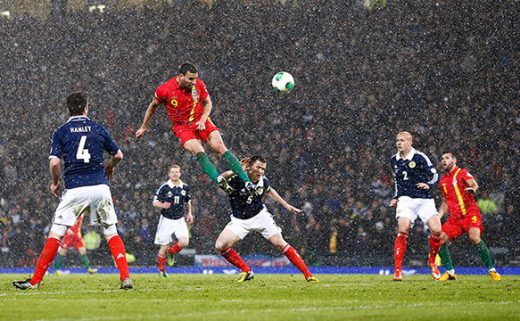

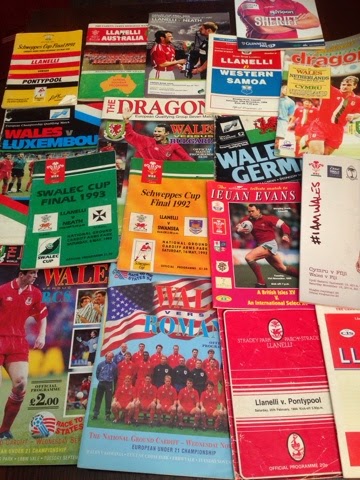
















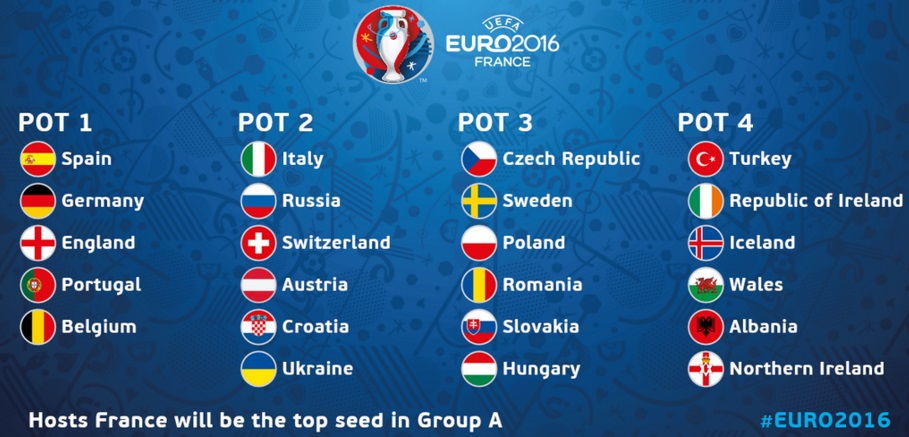


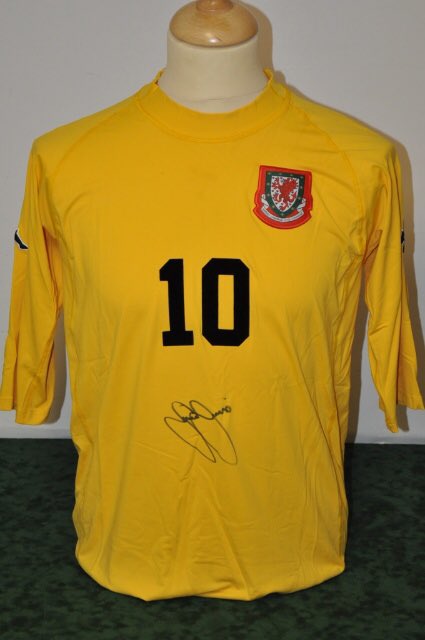

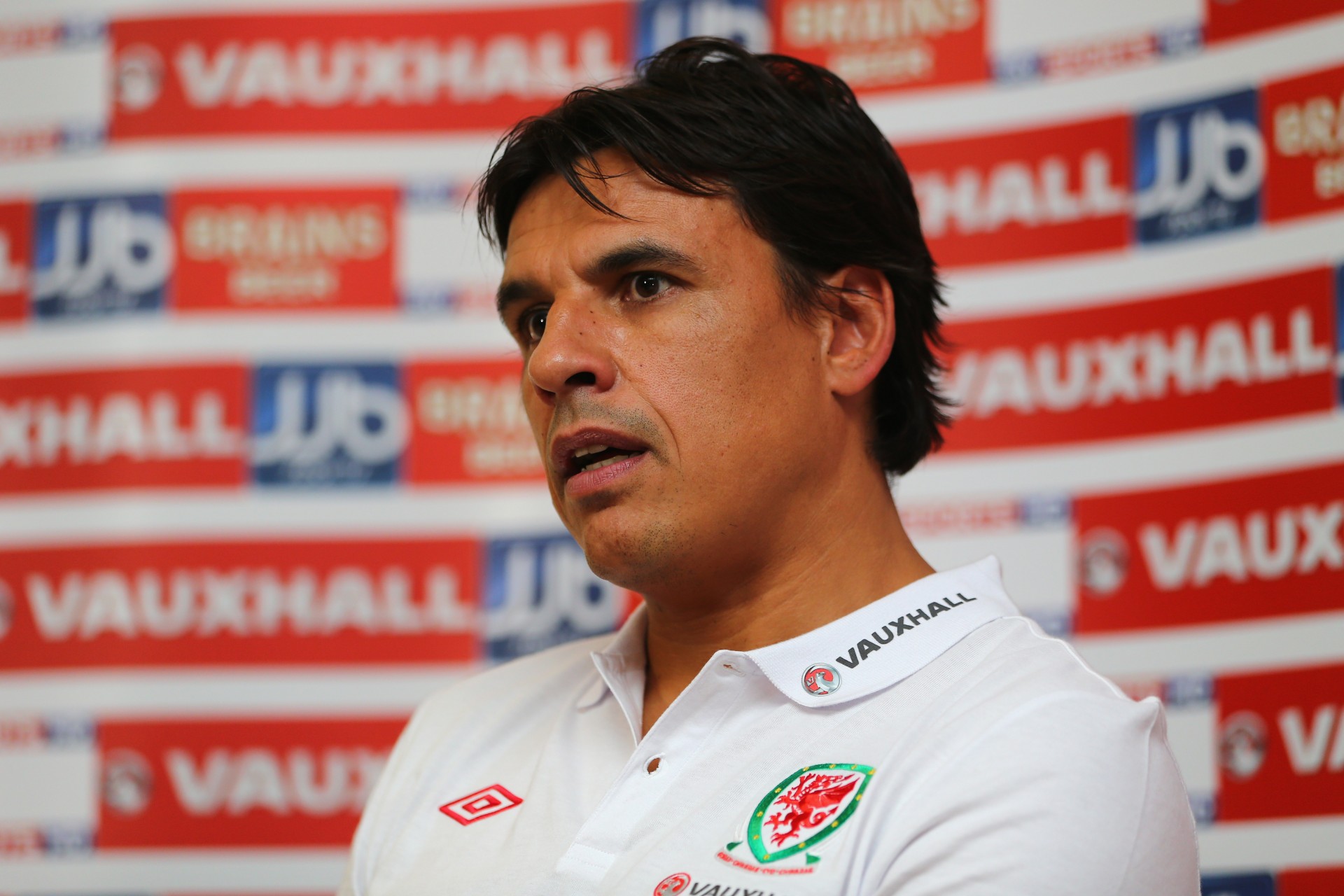
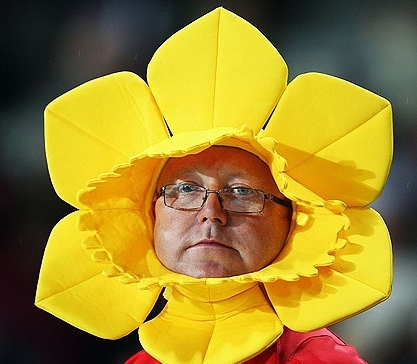



Superb article – especially for someone such as myself, with nerdy tendencies. What would make these stats even more interesting is if they were placed within an overall context of international average availability stats – and no, I’m not volunteering. My, undoubtedly biased, perspective, is that Wales has suffered more than most nations from loss of players, especially key players, through injury.
I would imagine that a 90% selection ratio would be just about the max for an automatic pick, allowing for the inevitable early career inconsistent selection, suspensions and occasional injury or illness. Williams approaches that mark – and provides the benchmark for what we can hope our best players might attain. I imagine that a 75% selection ratio would be just about par for the course for an automatic pick – so for the likes of Bale, Ramsey and Allen to fall well short of this notional mean, whilst unsurprising, also serves to illustrate how unlucky we’ve been. I’m sure the selection ratios for the likes of Rooney, Terry, Lampard and Gerrard are far higher – and some of their absences would have been down to the enviable position of an alternative better option having been available. With respect to the aforementioned trio – for the last four seasons they have always played when available and will continue to do so for another 6 or 7 years.
Going beyond the top tier of players the ratios for the next level, such as the likes of Collins, Gabbidon, Ledley and Taylor are all below 70%, with the first two below 50% – which is way below what you would expect for their talent. Even Hennessey only just makes 70%, far lower than you’d expect for a goalkeeper with little competition. How can we expect to qualify when so many of our key players lose such large chunks of their international careers to injury?
The thing is this is hardly new is it? How many games did Bellamy, Simon Davies, Giggs and Hartson lose to injury? Far too many that’s for sure.
Even though it makes a tedious and capricious narrative, it’s unfortunately true nevertheless that lady luck has played, and will continue to play, a massive part in determining our chances of qualifying. It’s NOT FAIR [stamps feet like small child]!
I share your frustration! Giggs, of course, missed games to injury and ‘injury’. Hartson made his debut for Wales *after* his £2.5m transfer to Arsenal. I can’t see how such a promising Welsh youngster nowadays, especially a striker, would make a similar move without already being capped. Koumas, Gabbidon, Davies and Colins are all examples of players not getting capped until their twenties. Within a decade the trend is to cap much younger: “if they’re good enough, they’re old enough”. And in most instances their talent has been proven good enough. A couple fall by the wayside (e.g., Neal Eardley, Richard Duffy) of course.